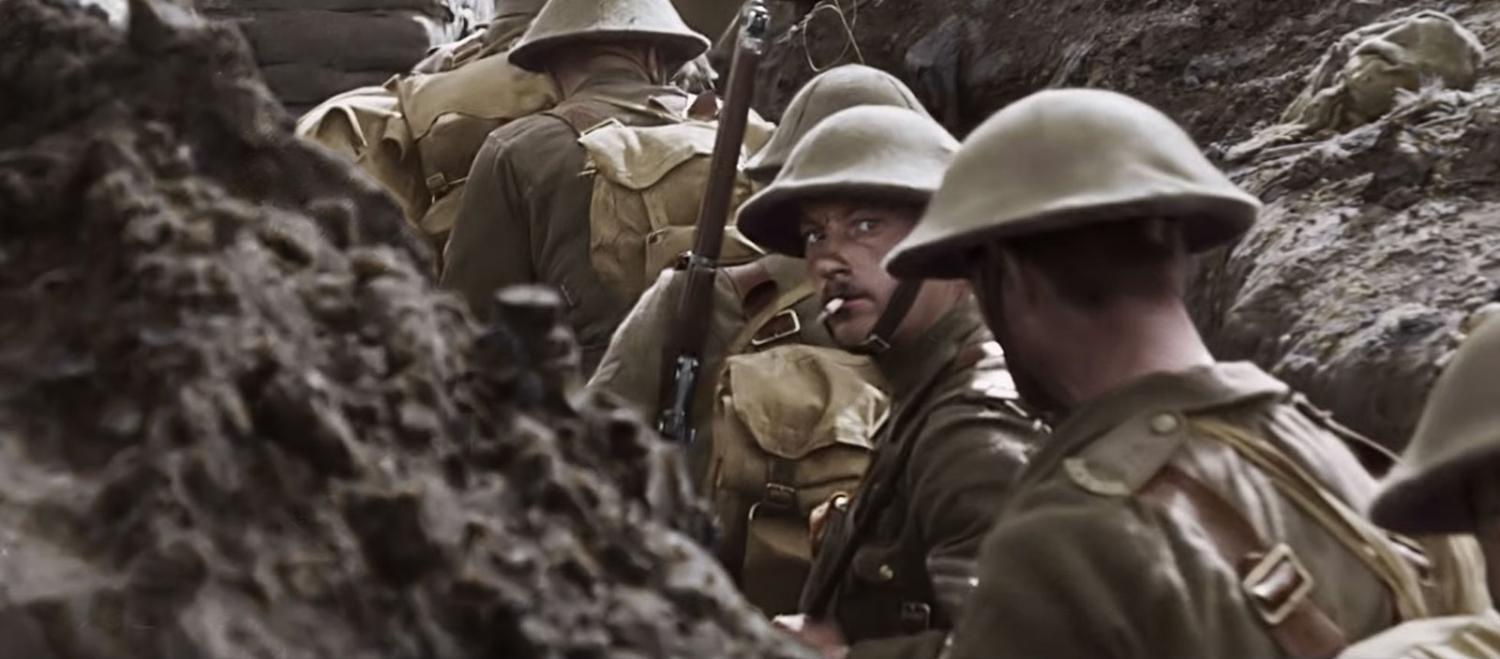Jackson achieves magnificently his professed goal of making a film about the human experience of the war.
The commemorations marking the centenary of the First World War were so regular that by 2018 a degree of commemoration fatigue seemed to have set in. Was there anything more than could be said about this defining event of the 20th century? Well yes, there was, as this evocative documentary, They Shall Not Grow Old, shows.
The documentary was produced by New Zealand film director, Peter Jackson, best known for his Oscar-winning Lord of the Rings. In 2015 he was approached by three major British associations, the Imperial War Museum, the BBC and 14-18 NOW, a cultural program that was taking place across the United Kingdom to mark the centenary. The proposal put to Jackson was to make use of the BBC and the IWM’s archives of original film footage and later interviews with First World War veterans.
The outcome of this collaboration has been internationally acclaimed. Jackson’s first achievement was to correct the original film’s pace. Footage from the war was shot at anything from 10 to 18 frames per second, with the rate often changing within a single reel. When projected at modern speeds, the images become jerky, rendering the human figures puppet-like. The formidable computer power of Jackson’s workshops allowed his technical team to build interstitial frames. The soldiers of the past now move at a normal pace, and the emotional distance between us and them is much reduced.
The second achievement of the Jackson team was to use colourisation. The images of the First World War are inevitably in black and white (as, very often, are those of the Second World War). In this documentary, however, the soldiers have been given flesh-coloured faces, khaki uniforms and often leafy green environments. The colourisation is not always completely life-like, but as Jackson has said, the more time and money you throw at colourisation, the better it becomes.
Perhaps the most powerful aspect to this documentary is the reclaiming of the voices of the veterans. Jackson chose not to use traditional narration – a great relief since this so often slips into ponderous clichés or political correctness. Rather, he featured only the audio archives of the soldiers talking about their war memories. Remarkably, he also engaged forensic lip readers to decipher what men were saying in silent film footage. The accents then used by actors were matched with the region from which the men’s units came.
Jackson achieves magnificently his professed goal of making a film about the human experience of the war. As he has said:
This is not a story of the First World War, it is not a historical story, it may not even be entirely accurate but it's the memories of the men who fought – they’re just giving their impressions of what it was like to be a soldier.
Some of these impressions will surprise today’s viewers. Modern war memory is infused with the trope of victimhood. The soldiers are usually assumed to be “lions” being led to the slaughter of industrial warfare by “donkeys” such as General Douglas Haig. But the voices in this film do not frame their war that way. They would not have missed it. Their pre-war lives, as the film footage of the home front and their toothless mouths shows, were profoundly deprived. War perhaps offered them a means of escape from a life without opportunity; and a chance to be part of an enterprise that was purposeful and historically significant.
Another powerful message that these voices convey is how utterly wretched daily life on the Western Front was. This might seem self-evident, given the horrendous death toll, but it is not the battles which figure prominently in this documentary. We hear much more about the dreadful food, the infestations of lice, rotten feet, and the discomfort of living conditions in the trenches. How did these men accept such hardship? Certainly, today’s generation of soldiers – and their families at home – would not tolerate it. No modern democracy could fight this war.
Part of the answer lies in the intensity of the personal relations that this hardship generated. Australians traditionally have called this mateship but in the British voices of this documentary, we hear of the great “kindness” manifest in the trenches: the capacity to share whatever soldiers might have received from the home front, and the ability to mitigate suffering through compassion. The message from this memorable documentary, then, is one of profound contradictions: hardship, loss, and terrible suffering; yet at the same time, survival, resilience, pride, and a sense of shared humanity.

